Domestic abuse: 'The police didn't believe me... The trauma will never go away'
- Published
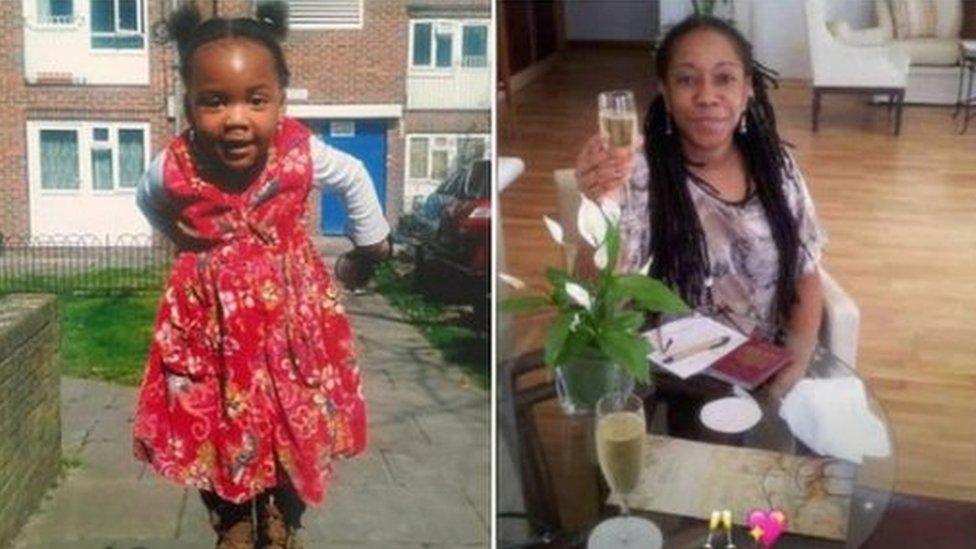
Valerie Forde and her daughter Jahzara were murdered by her ex-partner, having been failed by the Metropolitan Police
In March 2014, Valerie Forde and her one-year-old daughter Jahzara were murdered by her ex-partner. He attacked Ms Forde with a machete and a hammer and slit Jahzara's throat.
Six weeks earlier, he had threatened to burn down their house in Hackney, east London, with everybody inside. This was recorded as a threat to property rather than a threat to life. The police watchdog was heavily critical of the Met Police's failures, finding that officers' "inaction" left Ms Forde alone with her killer.
Domestic violence affects black women disproportionately, according to campaigners who want the law changed to compel police to undergo training that might help address this. A petition for a "Valerie's Law" has now attracted more than 100,000 signatures - the first step for the plans to be debated in Parliament.
As the 100,000-mark was reached, the BBC went to meet activists and police at an event in Croydon, south London, which had the highest number of domestic violence reports of any borough in the capital last year.
Campaigning for better support for the black victims of domestic violence
Woman after woman stood up in the Croydon Voluntary Action building to tell the Met officers gathered there that they weren't listening enough.
A common theme among campaigners and victims at the public meeting was that black victims still felt a lot of judgement when they tried to report abuse.
One woman explained how the police had failed to take her reports seriously, which allowed her abusive situation to spiral.
She said: "The police were never concerned about me, like when I was telling them - they don't believe what I was saying. And things escalate, escalate. They didn't listen to me, even when I've been to the police so many times, and they disregarded my concern.
"The pain will never go away, the trauma will never go away."
Stella Bolt, chair of the BAME domestic abuse partnerships forum, said it was "high time" Valerie's Law was brought in so that black women could get the support they needed.
Ms Bolt said there were "complex reasons" why black women were still being failed too often, and that a mixture of cultural, physical and socio-economic factors were at work. "The impact is twofold, as for some there will still be scepticism about whether we will see any change, but for others this will bring real hope," she said.
She added: "A lot of communities have police officers that are coming from parts of the city where people don't look like them and a lot of cultural context is missed: things like how to speak to a person of colour, how to relate to people from different cultures, how to avoid making assumptions and judgements."
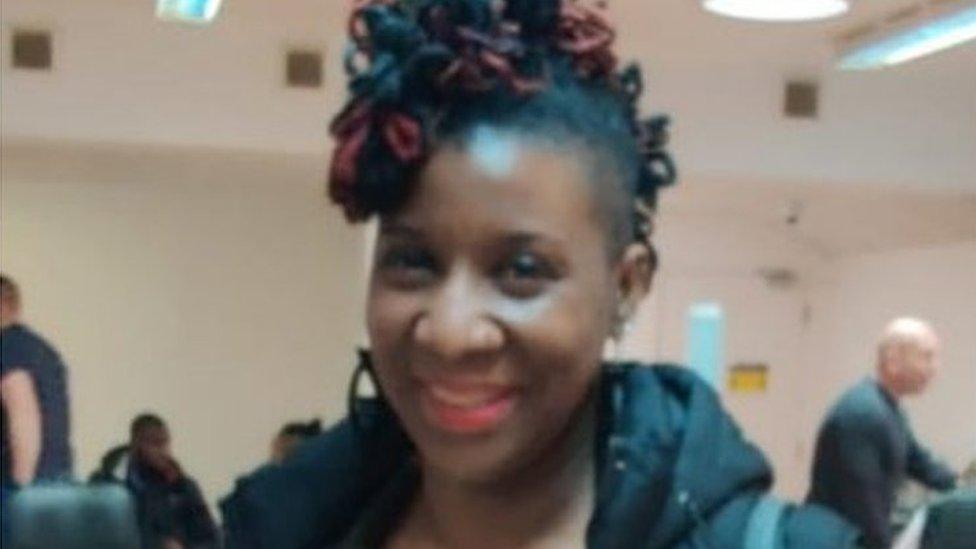
Campaigner Donna Murray-Turner says attitudes need to change
Safer Neighbourhoods chair Donna Murray-Turner, who has been giving training to Met Police officers, said some communication issues were class-based as well as racial and gendered.
"The police are an incredibly middle-class institution delving into the lives of working-class people," she said. "There is a relationship between white males and black female bodies, and women perceive they're being viewed as almost like animals."
Nicole Godetz, campaigner and director of consultancy Noo Thinking, agreed there could be communication issues between victims and police.
She said: "In Croydon, a lot of officers have moved in from Surrey and could take the slightest thing as aggressive when it's normal behaviour round here."

Valerie's Law
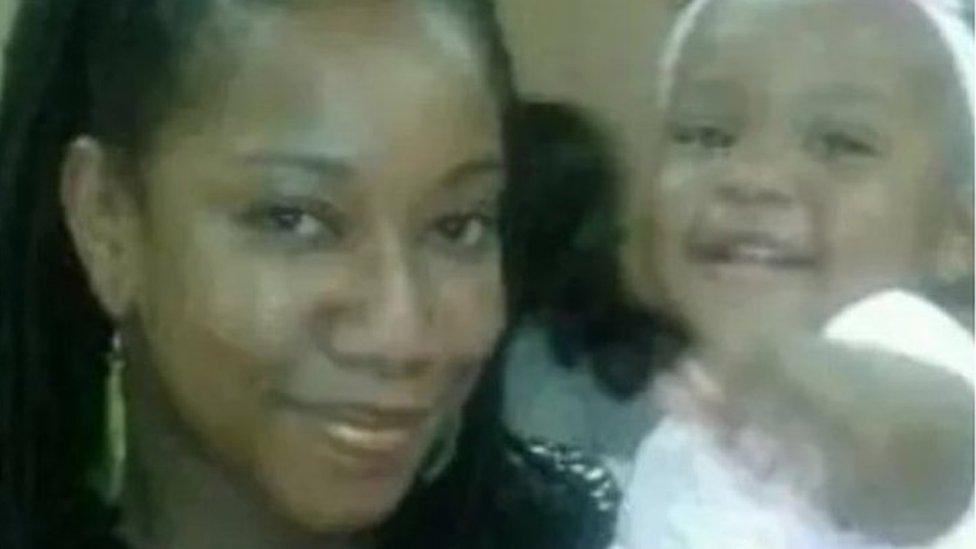
Valerie Forde warned police that she and her daughter were in danger
Campaigners say too many African and Caribbean-heritage women have not been afforded the same level of support that is offered to others
They are campaigning for Valerie's Law, which would mean there is mandatory police training to ensure better understanding of the cultural needs of black women affected by domestic abuse
They say that without it, it's impossible to support or risk-assess black women effectively, which puts them in increased danger

Det Insp Tom Revell, who is the head of the Met's community safety unit, apologised to the gathering. He pledged to tackle the issues that had been highlighted and said he wanted to continue to improve the response of officers.
There was some impatience from activists, who said they had been calling for change for years without success.
"It disappoints me if anyone feels they haven't got the right response from me or my officers," Det Insp Revell told the meeting.
"We're aware that the police are a bit burly, a bit brisk, and a bit to the point," he said. "As somebody who is committed to public protection and [tackling] domestic violence against women, I want to make sure every woman has the support they deserve."
A Met Police spokeswoman added a specialist predatory offender unit had been launched just over a year ago to tackle the most high-risk offenders and in that time had made 1,312 arrests for domestic abuse offences.
She said: "Tackling domestic abuse is an absolute priority for the Met and we are committed to protecting those who are at risk wherever and however we can."
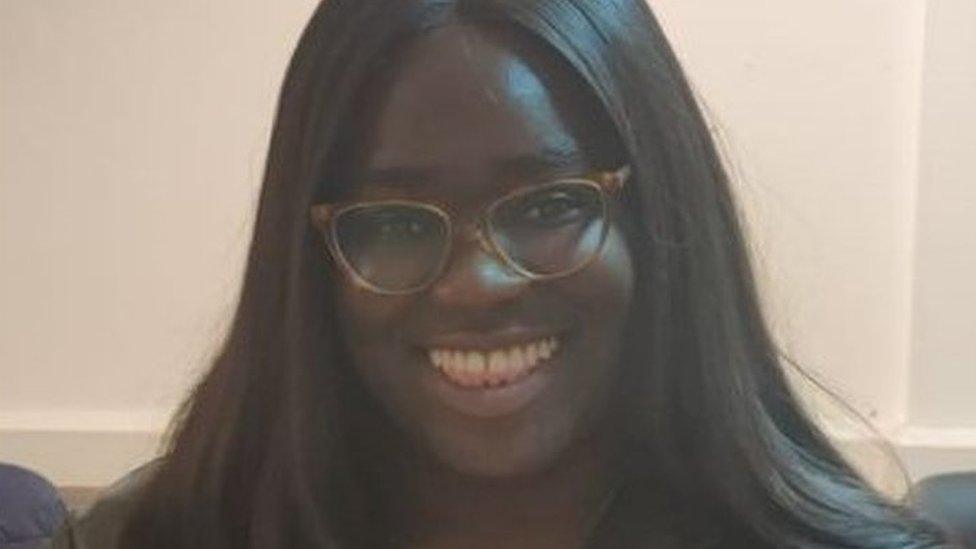
Christabel Yeboah says diversity training is not enough
Founder of the Hersana organisation Christabel Yeboah also spoke at the event.
Ms Yeboah, whose not-for-profit group provides support for black victims of abuse, pointed out that black women and girls are often seen as more sexualised and therefore less worthy of being given "victim status", including in domestic abuse cases.
"Studies have shown that black girls are seen to be more adult, aged eight to 11, compared to their white or Asian counterparts," she said.
"That can mean less empathy because they're seen to be more grown and therefore 'asking for it'."
The reason she supports Valerie's Law is that she believes the diversity training police currently perform does not delve deep enough to root out many of the dehumanising assumptions linked to violence against women and girls.
For Ms Yeboah, it is time for the Met to show it is changing - through actions and not just words.
Valerie's Law is under consideration by the Petitions Committee for a debate in the House of Commons in the coming weeks.
If you've been affected by any of these issues, you can find someone to help through the BBC Action Line: Sexual Abuse and Violence
- Published19 October 2021
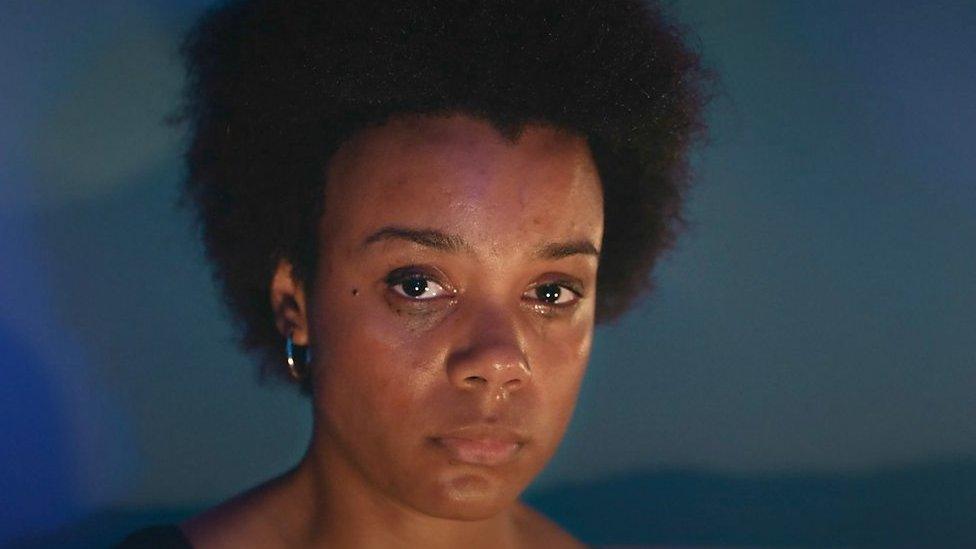
- Published17 December 2014
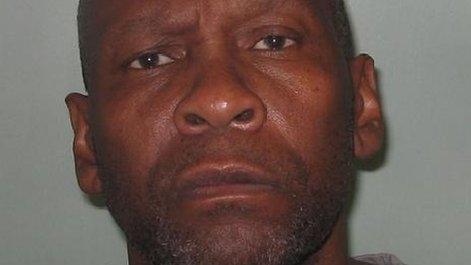
- Published17 June 2016
